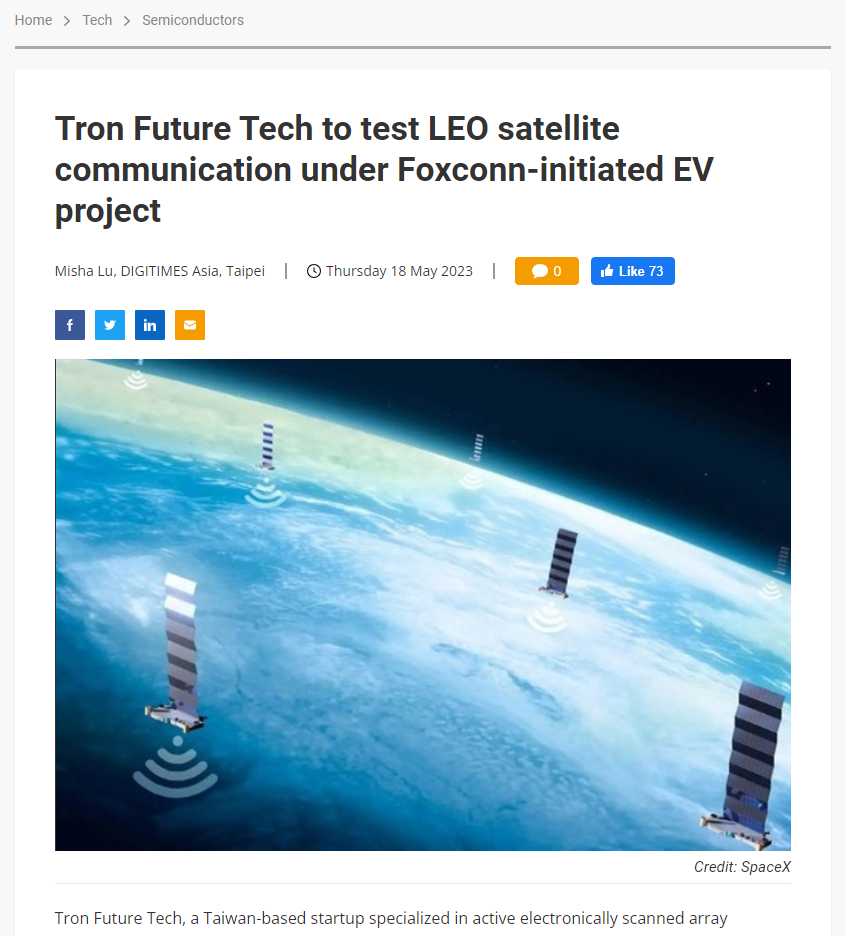Tron Future Tech, a Taiwan-based startup specialized in active electronically scanned array (AESA) for drone and space applications, recently announced success in delivering the prototype of T.SpaceRouter, its automotive user terminal for low-earth orbit (LEO) satellite communication. In a press release, the company claimed that the T.SpaceRouter sourced 85% of components locally, marking a milestone for domestically developed automotive LEO satellite communication user terminals.
The automotive satellite communication terminal will undergo prefeasibility assessment conducted by the Foxconn-led MIH EV development platform as the later explores LEO satellite communication solutions for vehicles. T.SpaceRouter will also be featured in the Taipei Aerospace Defense Technology Exhibition in September, together with the company’s LEO satellite communication payload.
According to Tron Future Tech, the AESA-based T.SpaceRouter contains a transmit and a receive antenna, each with 1024 elements, and operates in the ITU Ka-band frequency range (Downlink: 17.8 ~ 20.2 GHz, Uplink: 27.5 ~ 30 GHz). It supports up to 250MHz instantaneous bandwidth and 16APSK / QPSK / BPSK modulation (configurable). The maximum EIRP is over 36 dBW, while the total power consumption is less than 100 W. A variety of standard interfaces, including RS485, RS422, and RJ45, are provided for ease of integration with automotive connectivity solutions.
Wang Yu-Jiu, Tron Future Tech’s Chairman and CEO, also chairs MIH’s Global Connectivity Working Group that seeks to contribute to the standardization of various automotive communication use cases, including those used in autonomous driving. The group plans to release a white paper in second-quarter 2023 outlining a hybrid architecture that integrates satellite communication and vehicle to everything (V2X) communication for future MIH EV platforms. However, Wang previously indicated that there’s no plan to connect with Starlink, and that the various protocols adopted by different satellite network operators also pose a challenge. Meanwhile, Foxconn’s independently designed and manufactured cubesat is scheduled for launch in 2023.
(…)
